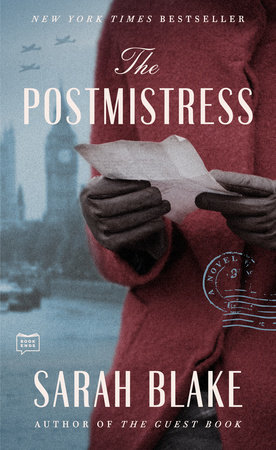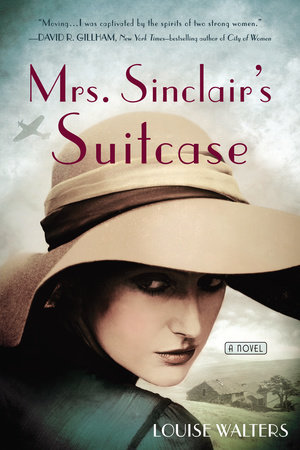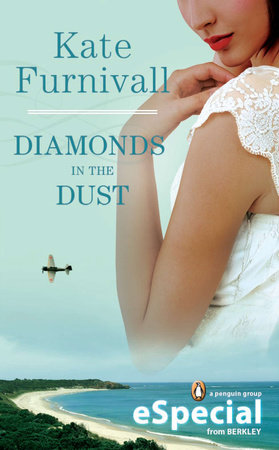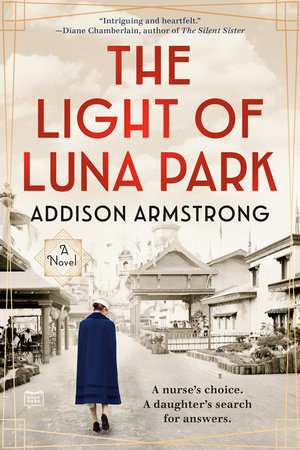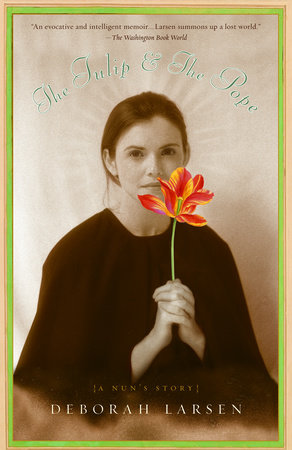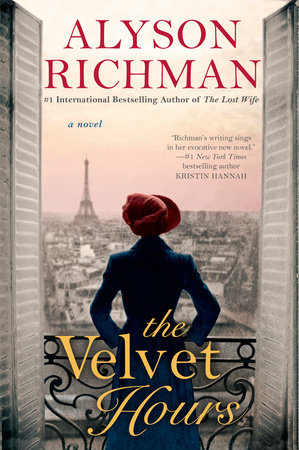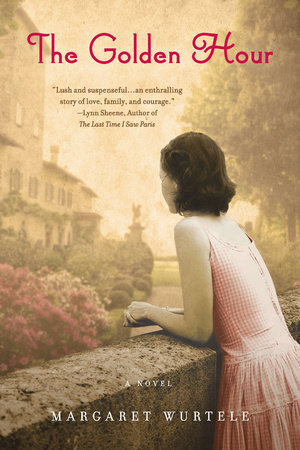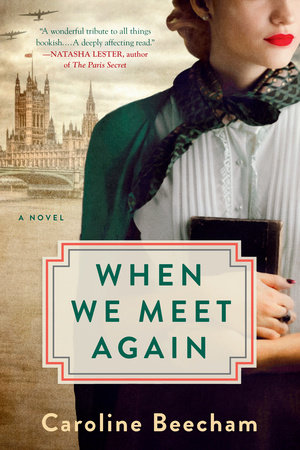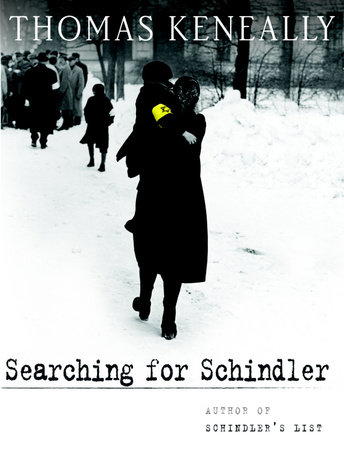Why did you decide to set your novel in the period immediately before the United States was drawn into World War II? To be honest I fell into writing a World War II novel by accident. The Postmistress started with a picture in my head of a woman in a small post office in Cape Cod, looking down at the letter she is supposed to deliver in her hand, and simply pocketing it instead. In order for her action to have some kind of narrative consequence, I knew I had to set it quite a ways back in the past, and I simply chose WWII because I had some letters from then between my grandparents. But I also wanted to write about WWII if I could, without the straitjacket of hindsight, so I thought it would be easier and more interesting to imagine the time before everyone was sure where they were headed, before the war had crystallized into “The Good War,” as it came to be called and our participation in it was certain—a time when Americans were still going on with their lives, and the war was safely “over there.” I thought questions of responsibility and our involvement with other people’s conflict and sorrow could be better imagined with the freedom of uncertainty.
How did the events of September 11, 2001, influence this novel?
My husband and I and our two sons had moved to Washington DC a month before the attacks, and our youngest was seven weeks old. At the time I was reading about the German U-Boats along the coastline of the Eastern Seaboard, and of our refusal to dim our lights, not being convinced that the threat warranted that kind of measure. We had hired a Russian woman to look after our baby in the mornings, and September 11 was her second day of work. I remember coming downstairs and seeing her standing in front of the tiny television, shaking her head, saying darkly, “This is the beginning. They will come to poison us next.”
I remember thinking how Russian, and took my baby from her; but then the two of us stood side by side in silence watching, the truth of what we were actually in the middle of sinking in slowly, and in layers. My husband was in Maryland at the University without a car and the Metro shut down, and no phone, and as the day wore on, I had that first initial shock that everyone must have to some degree or another during an emergency—that the fabric had torn, the systems had evaporated. There was no overseer. We were in fact, on our own. In truth, he was not in danger; it was a matter of worry only, and he made it home in the end because our nanny’s husband, also Russian, knew all the back routes in and out of the city and simply got in the car, drove to the University of Maryland, and found him having never laid eyes on him.
But that weird silence, and the subsequent days afterward in DC—the F16s flying overhead, the tanks downtown—brought home to me how terrifying and how confusing it must have been immediately after Pearl Harbor, when no one knew whether we were in danger from an air attack from Japan. The unreal question, are we in danger? Right now? was on everyone’s lips in DC, and I thought repeatedly of those U-boats in so close without our knowledge. Who could say? That day certainly showed me enough to be able to imagine Frankie’s understanding during the Blitz—in war there is no protective curtain, nothing between you and it. And that is what she’d like America to understand.
“Get in. Get the story. Get out,” Edward R. Murrow instructs his reporters. But Frankie can’t manage to do that. She comes across a war story that is too much for her. What is it that overwhelms her? Are war reporters today any better equipped to cope with the emotional and spiritual impact of what they encounter?
When I was researching Frankie’s character, I asked one of the journalists I spoke to who had covered Bosnia and the first Gulf War, what was difficult about returning home. He said he realized he had been in danger of becoming numb, of becoming what he called a “tourist to other people’s suffering.” Frankie refers to the story of the postmistress and the widow as the war story she never filed. It was too much for Frankie because she realized that the stories she was writing, the truths of war, were not stories—they were people. And the question she keeps being asked, What’s the story? sounds more and more to her to be heartless and beside the point. She returns from Europe with too many unfinished stories in her hands, ironically the very thing that propels her up to Franklin to give Emma Will’s letter. There, faced with one more person touched by the war, a person who doesn’t know what has happened yet, Frankie goes mute. She can neither be the ending nor bear the ending.
I can’t speak for war reporters today, but one of the most influential pieces of reporting written while I was working on The Postmistress was not about war at all. It was Nicholas Kristof’s heartbreaking story of the death in childbirth of Prudence Lemokouno in 2006 in Cameroon. Kristof was reporting conditions for laboring women and watched as she died needlessly—for lack of blood and because the doctor had gone home—though Kristof had given blood to save her. In the end, all Kristof could do was report. His pieces called to mind Martha Gellhorn’s anguish over refugees during WII: “In the end we became solitary stretcher-bearers, trying to pull individuals free from the wreckage. If a life could be saved from the first of the Gestapo in Prague, or another from behind the barbed wire on the sands of Argeles, that was a comfort, but it was hardly journalism. Drag, scheming, bullying and dollars occasionally preserved one human being at a time.” Both of these journalists inspired Frankie’s anguish and rage.
You’ve commented that this isn’t so much a war novel as it is a novel about how we cope with the knowledge that there is war and suffering in other parts of the world while we calmly continue to go about our daily routines. It’s about how we deal with the news, and what we do in response to it. Today it’s Afghanistan and Iraq and Darfur. In decades past it was Sarajevo and Vietnam. And in the late 1930s and early 1940s it was the suffering of the British under German bombing, and the plight of millions of European Jews. Is it simply human nature to put out of our minds suffering among people that we don’t know, or that we feel we can’t do anything about?
Anyone who has had a death in the house knows that surreal double-life that occurs when the world goes on outside the house, groceries are bought, and people walk up and down talking on the street outside, while someone is dying in the world inside the house. This doubleness, and the isolation it can create, is something I have thought about a lot. I suppose I have often tried to imagine not only the terror but also the disbelief that war victims and refugees suffer—that they are invisible to, or seem to be invisible to, the rest of the world. That someone simply is killed, just like that. While life goes on.
I don’t know if it’s necessarily human nature to put suffering out of our minds when we can’t do something about it—it seems more complicated than that, since we often can’t keep ourselves from looking. Susan Sontag’s book Regarding the Pain of Others probes this terrain quite usefully. She remarks that too much emphasis is placed on remembering and perhaps more emphasis needs to be placed on thinking. The hard part seems to me what do we do about knowing what we know?
Some of your characters pose this debate in religious terms. Iris, the postmistress, sees herself as doing God’s work by making sure the mail moves without a hitch, helping to maintain the divine order that underlies reality. But another character says, “There is no God, only us.” Does war have a unique way of crystallizing these kinds of spiritual questions for us?
The story Thomas tells Frankie on the train was told to me, roughly as is, by a woman I sat next to on a plane long before I knew that there was going to be a Frankie in my novel, long before I had begun to collect and research stories like this one of escape from the Nazis. And I remember thinking my god, at every point this man could have as easily been killed as helped, and at each point he was stopped and then simply walked through another gate, to freedom. On the one hand, it seemed that if there was an argument for divine providence or intervention, then here it was. On the other hand, it seemed equally a story about the terrifyingly random nature of human generosity—each man at every checkpoint could have decided not to let Thomas through. At each point, Thomas’s fate lay in the hands of another human being. Thomas’s luck holds until he runs into the last checkpoint, which leads Frankie to decide as she says to Max her editor, “it’s nothing but an empty sky up there.”
That story was seminal for me in putting together the questions of accident and design I was wrestling with in the novel. That said, of course, war doesn’t crystallize anything for those who go through its trauma—it immobilizes, if often numbs and mutes. I can raise this question because I am off the battlefield.
One of your characters is convinced that the Germans are about to land on Cape Cod at any moment. How close to being right was he?
Though there is no evidence of a German U-boat beaching in Cape Cod, there were numerous close calls. As early as February of 1941, Germany’s Admiral Donitz ordered a feasibility study of a surprise U-boat assault on the East Coast, and by January of 1942, the first U-boat rose successfully undetected into the channel of New York Harbor. That same submarine went on to nearly run aground on the sand-spit of Fire Island.
Throughout most of 1942, German U-boats ran so close to the Eastern Seaboard that they watched the dark silhouettes of people walking up and back along the beachside promenades against the lights of hotels, cars, and houses. The high hulls of the tankers steaming towards Europe with food and supplies were lit up as well, making of them fantastic, easy marks. Of 397 ships sunk by U-boats in the first six months of 1942, 171 were sunk off the Atlantic Coast from Maine to Florida, some within view of people on shore.
What sort of research did you do for this novel – about the history of radio, America in the pre-war years, the Blitz, and the stories of the Jewish refugees?
This book took me eight years to write; in part because as the story line grew, it took me deeper into libraries and museums. I read countless books on the years between 1932 and 1945, of history, of autobiography, of speeches and news articles. I read the novels written during those years as much for colloquial speech as for dress and mannerisms. I thumbed through a decade of Life Magazines. I saw as many movies made during those years as I could. I interviewed a postmaster, a midwife, several journalists, and a Navy sub commander. I spent hours in the Museum of Radio, the National Postal Museum, the National Archives, and the Holocaust Museum here in Washington DC.
You have a Ph.D. in Victorian literature, and at one point your narrator calls Iris “a Dorothea Brooke for a snappier fiction,” in reference to the heroine of George Eliot’s Middlemarch. Do you see the influence of Victorian fiction in your own work?
Yes, very much so. I’ve always loved sinking into the whole worlds Victorian novels hold—complete with many characters talking or arguing the issues of the day. But Henry James’s complaint lodged against the nineteenth century novel, that it is a “loose baggy monster,” captures perfectly the troubles and strengths of the Victorians. Victorian novels often move laterally—progressing sideways at a slow walk rather than hurtling forward.
Middlemarch, for example, was giving George Eliot trouble in the writing, until she realized she could put the two novels she was working on together and bound them in the frame of a town, of Middlemarch.
The Postmistress, no matter what I did, kept expanding sideways like this, the three story lines sidling off from each other, until I found a way to train them together—using the radio broadcasts to travel back and forth between the stories and the places.
Frankie observes at one point, “Every story – love or war – is a story about looking left when we should have been looking right.” What does she mean by that? How is it connected to the Greek myth of Theseus?
Literally, Frankie writes this after the doctor has been killed by a taxi—an American’s accident in London—because he is not looking in the direction he should be. But it is her ironic realization too by the end of the novel—you can’t see what’s coming even when you are looking. She thought she was bringing the doctor’s letter to Emma, and instead she is bringing the news of his death. This is her realization when she responds to Iris’s telling of the story of Theseus. If Theseus had remembered to change his battle sails, his father would never have died. For Iris, the myth exemplifies the horror of accident, the necessity for vigilance. For Frankie, the myth brings home to her that these accidents, these human mishaps, are the reasons stories get told. They are the story. That is the pathos and drama of being human.
There’s an epigraph from the famous World War II reporter Martha Gellhorn at the beginning of your book: “War happens to people, one by one. That really is all I have to say, and it seems to me I have been saying it forever.” Does that quotation echo your own intention with this novel?
Absolutely. I was very much influenced by Martha Gellhorn’s reporting—by her mix of outrage and matter-of-factness, and above all else by her capacity to see each and every person she interviews or puts into a story, as a human being first.
